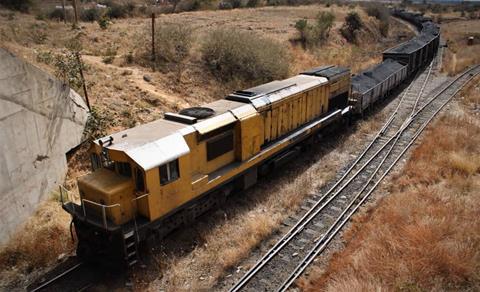
ZIMBABWE: Mirroring the policy emerging in neighbouring South Africa, National Railways of Zimbabwe has announced plans to open its infrastructure to new entrants in an effort to increase the provision of rail services on the network.
NRZ General Manager Respina Zinyanduko said the plan is at an advanced stage with the board having already approved a recommendation by management to allow private companies to run trains on the state railway’s tracks.

The arrangements stop short of a formal open access policy, because initially the private players will be expected to provide locomotives and wagons to move freight for NRZ customers. They will then pay access and administration fees to the parastatal.
‘The initiative will ease pressure on the roads as more bulk cargo will be moved by rail while also generating income for the NRZ through access and administration fees’, said Zinyanduko.
This approach is intended to help NRZ to provide more reliable movement of traffic to and from sea ports in neighbouring Mozambique; in recent years, significant amounts of this bulk traffic has been lost to road.
According to Zinyanduko, three unnamed companies have expressed interest in the opportunity, and more details about potential new services are due to be announced in January.
The private players will use NRZ drivers, and locomotives and wagons would be maintained at NRZ’s workshops, with the aim of creating more employment. This approach would allow NRZ to pursue its recapitalisation initiatives, at the same time providing more reliable service to its customers, she explained. This was part of what she termed a three-step strategy for stabilisation and growth.
‘NRZ has customers with cargo and we are inviting private players with locomotives and wagons so that we can jointly move efficiently the traffic’, an NRZ spokesman told Railway Gazette International.
- NRZ recently announced it had cleared a US$857 600 debt to its pension fund which had been outstanding for several years. It says it has paid off other local debts including bank loans. It also reports that it has reduced its outstanding payment obligations to Mozambique’s state railway and ports group CFM from a peak of US$6m to US$3·2m today.

















